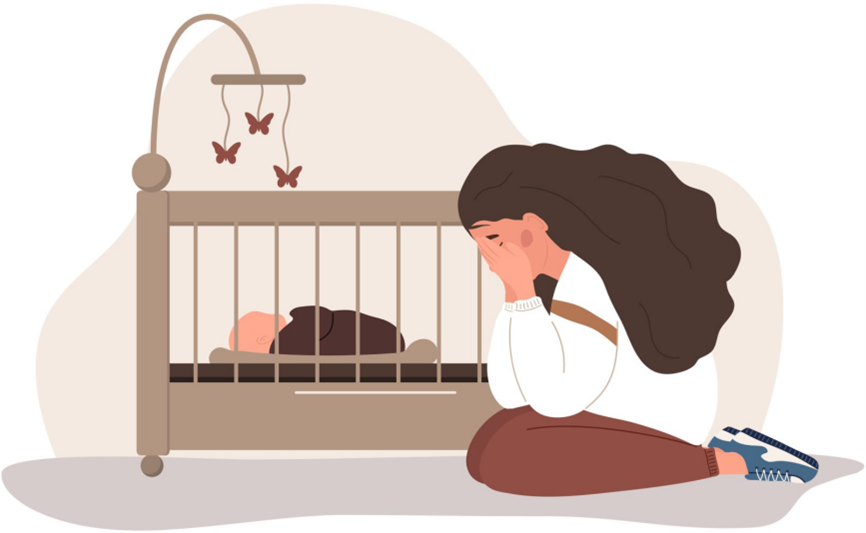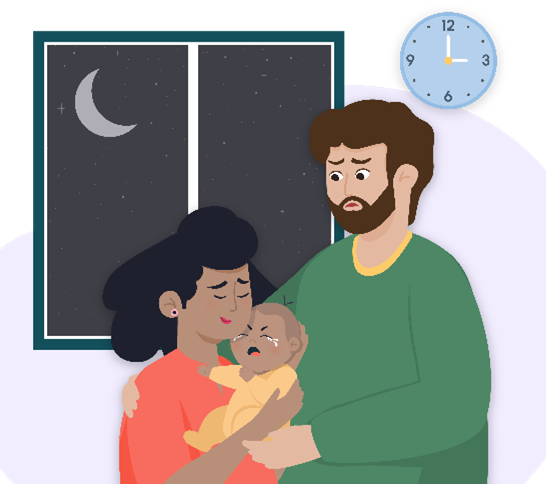When a new baby is born it's common for their parent/caregiver to have emotional ups and downs. Feelings of excitement and joy are often mixed with feelings of worry and tiredness. Mixed feelings may be the result of changing hormones, lack of sleep and adjusting to caring for a newborn.
Signs and symptoms of postpartum depression include:
- Feelings of anger, emptiness or numbness, frequent mood swings, frustration or misery, guilt, irritability, restlessness or agitation, hopelessness, sadness.
- Behaviour changes such as avoiding places, people, family and friends in a way that is unexpected of a person, crying frequently, not coping with things that a person used to be able to handle, using alcohol or other substances to feel better.
- Thoughts of failure, worthlessness, that the baby would be better off without them, no longer wanting to be here, and having trouble concentrating or making decisions.
- Physical symptoms, such as difficulty relaxing, difficulty sleeping, nausea or upset stomach, overeating or severe lack of appetite and having to force oneself to eat.

While a parent/caregiver may feel a range of emotions, it is important to pay attention to feelings of distress that don't go away and reach out to a health care provider.
Getting help early can mean that a person will feel better sooner. A health care provider will use a questionnaire (screening tool) for perinatal depression and anxiety that was made specifically to help people recognize when they are experiencing depression and anxiety during pregnancy or postpartum. Parents/caregivers can also answer the questions on their own using the Edinburgh Perinatal/Postnatal Depression Scale and then take the results to their health care provider. It is also important to consider the individual's past, and any family history of depression and previous treatment.

